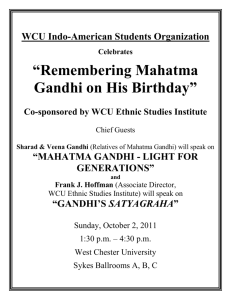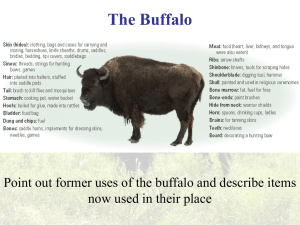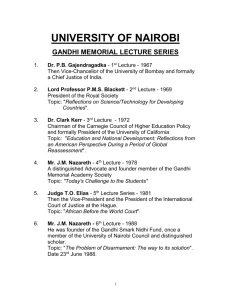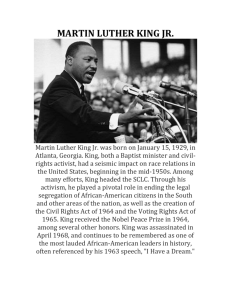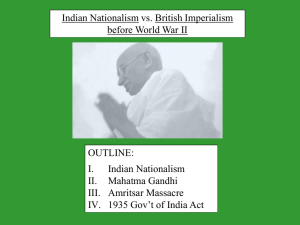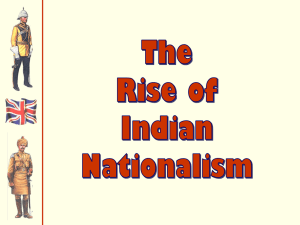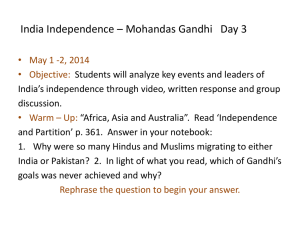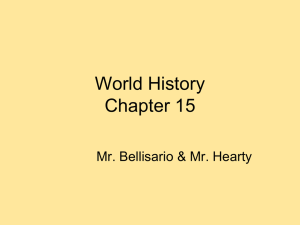Gandhi Reading
advertisement
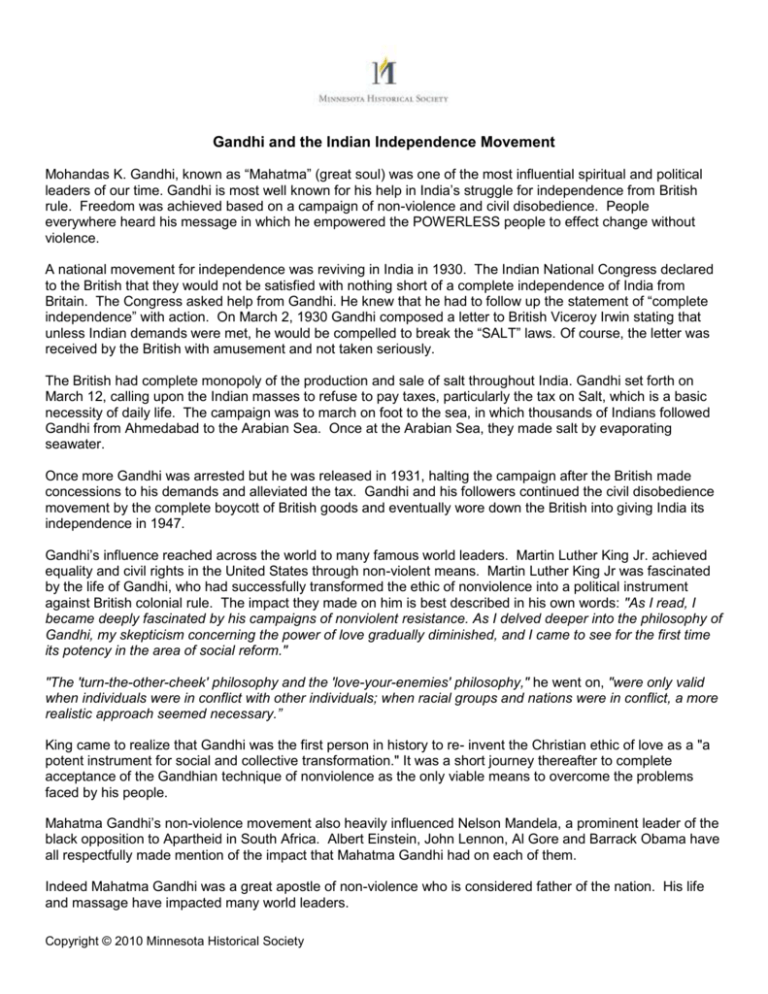
Gandhi and the Indian Independence Movement Mohandas K. Gandhi, known as “Mahatma” (great soul) was one of the most influential spiritual and political leaders of our time. Gandhi is most well known for his help in India’s struggle for independence from British rule. Freedom was achieved based on a campaign of non-violence and civil disobedience. People everywhere heard his message in which he empowered the POWERLESS people to effect change without violence. A national movement for independence was reviving in India in 1930. The Indian National Congress declared to the British that they would not be satisfied with nothing short of a complete independence of India from Britain. The Congress asked help from Gandhi. He knew that he had to follow up the statement of “complete independence” with action. On March 2, 1930 Gandhi composed a letter to British Viceroy Irwin stating that unless Indian demands were met, he would be compelled to break the “SALT” laws. Of course, the letter was received by the British with amusement and not taken seriously. The British had complete monopoly of the production and sale of salt throughout India. Gandhi set forth on March 12, calling upon the Indian masses to refuse to pay taxes, particularly the tax on Salt, which is a basic necessity of daily life. The campaign was to march on foot to the sea, in which thousands of Indians followed Gandhi from Ahmedabad to the Arabian Sea. Once at the Arabian Sea, they made salt by evaporating seawater. Once more Gandhi was arrested but he was released in 1931, halting the campaign after the British made concessions to his demands and alleviated the tax. Gandhi and his followers continued the civil disobedience movement by the complete boycott of British goods and eventually wore down the British into giving India its independence in 1947. Gandhi’s influence reached across the world to many famous world leaders. Martin Luther King Jr. achieved equality and civil rights in the United States through non-violent means. Martin Luther King Jr was fascinated by the life of Gandhi, who had successfully transformed the ethic of nonviolence into a political instrument against British colonial rule. The impact they made on him is best described in his own words: "As I read, I became deeply fascinated by his campaigns of nonviolent resistance. As I delved deeper into the philosophy of Gandhi, my skepticism concerning the power of love gradually diminished, and I came to see for the first time its potency in the area of social reform." "The 'turn-the-other-cheek' philosophy and the 'love-your-enemies' philosophy," he went on, "were only valid when individuals were in conflict with other individuals; when racial groups and nations were in conflict, a more realistic approach seemed necessary.” King came to realize that Gandhi was the first person in history to re- invent the Christian ethic of love as a "a potent instrument for social and collective transformation." It was a short journey thereafter to complete acceptance of the Gandhian technique of nonviolence as the only viable means to overcome the problems faced by his people. Mahatma Gandhi’s non-violence movement also heavily influenced Nelson Mandela, a prominent leader of the black opposition to Apartheid in South Africa. Albert Einstein, John Lennon, Al Gore and Barrack Obama have all respectfully made mention of the impact that Mahatma Gandhi had on each of them. Indeed Mahatma Gandhi was a great apostle of non-violence who is considered father of the nation. His life and massage have impacted many world leaders. Copyright © 2010 Minnesota Historical Society
